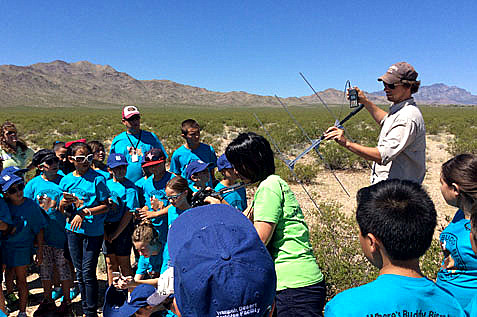Help a Species, Adopt a Tortoise
Desert tortoise, Joshua Tree NP (credit: NPS)
The Desert Tortoise inhabits deserts in California, Arizona, Nevada, and Utah and it is in trouble. In 1920, 1000 tortoises/square mile were estimated to exist in the Mojave desert alone. Seventy years later the slow-moving reptiles were listed as threatened on the Department of Interior's endangered species list. The slow moving creatures have suffered from a series of threats including harvesting for the commercial pet trade; habitat destruction; and being roadkill. Several active efforts are now underway to reverse their decline.
Joshua Tree National Park has established a program to better understand the status of the desert tortoise, its ecology, and how populations can be rebuilt in the hyper-arid environment of that California park. Working with volunteers from non-profit organizations as 'citizen scientists', park managers began an initiative to monitor tortoise behavior using radio-tagging the reptiles with transmitters. The batteries last three years and provide valuable data that couldn't be acquired otherwise on the lumbering animals. There is even a cell phone app you can use to help the field workers identify tortoises you might encounter on a desert hike. Efforts by other parks even allow an individual to adopt a tortoise by making a donation to sponsor a tortoise. The donations go directly to acquiring additional tracking devises to expand the monitoring of more turtles.


Desert Tortoise radio tracking and health measurements (credit: National Park Service & Institute for Wildlife Studies)
A park service video shows what dedicated volunteers and park managers can accomplish for conservation of this iconic desert animal when groups collaborated together. WHB